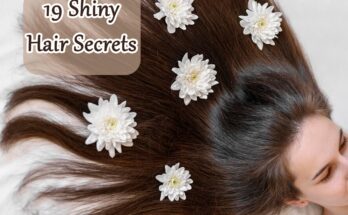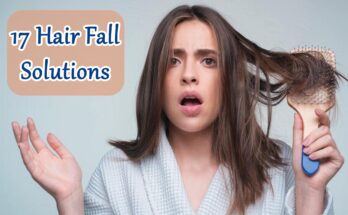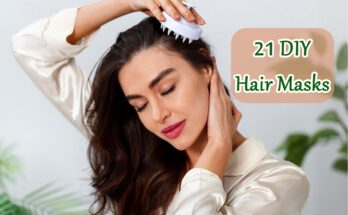A healthy scalp is the foundation of beautiful hair. If your scalp is irritated, dry, or overly oily, it can lead to hair thinning, dandruff, and slow hair growth. Many people focus only on hair strands, forgetting that the real magic happens at the roots.
But how do you take care of your scalp properly? It’s easier than you think! A consistent scalp care routine can help balance oil production, remove buildup, and stimulate healthy hair growth. Ready to give your scalp the attention it deserves? Here are 21 effective scalp care ideas to transform your hair from the roots up!
1. Start with a Gentle Scalp Massage
A scalp massage is one of the easiest ways to boost blood circulation and encourage hair growth. It helps nutrients reach your hair follicles, making them stronger and healthier over time. Using your fingertips in gentle, circular motions for a few minutes can make a significant difference.
For better results, apply a few drops of essential oils like rosemary or peppermint to your fingertips. These oils help stimulate hair follicles and reduce scalp inflammation. Doing this daily before washing your hair can improve scalp health and prevent hair loss.
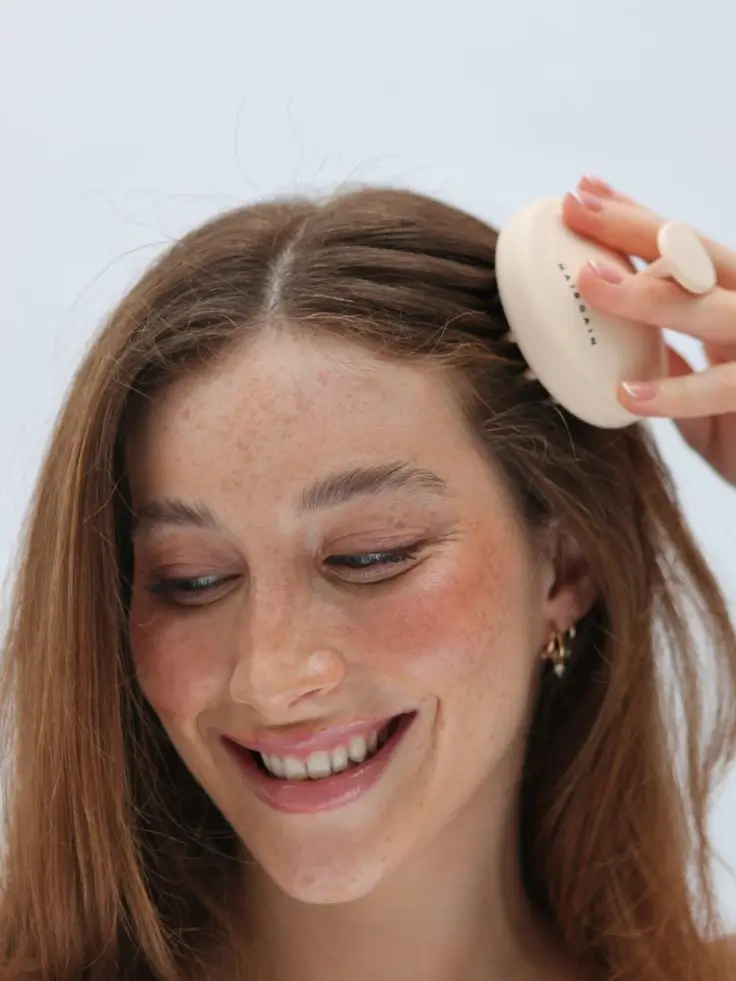
2. Choose the Right Shampoo for Your Scalp Type
Not all shampoos are created equal, and using the wrong one can make your scalp too dry or too oily. If you have an oily scalp, a clarifying shampoo can remove excess oil and buildup. For dry scalps, a hydrating shampoo with natural oils can keep it moisturized.
If your scalp is sensitive, avoid shampoos with sulfates and synthetic fragrances. These ingredients can cause irritation and dryness, making scalp issues worse. Choosing a shampoo that matches your scalp’s needs can prevent irritation and improve overall scalp health.
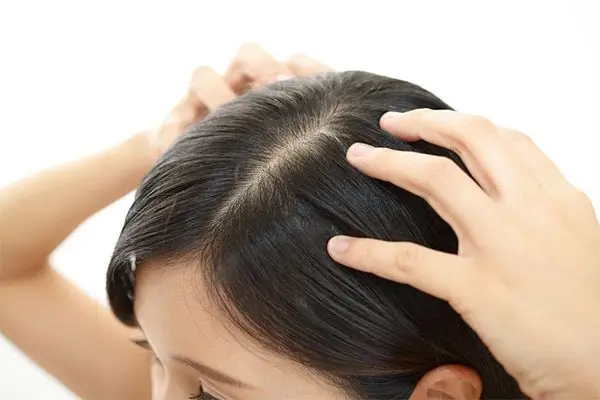
3. Exfoliate Your Scalp Weekly
Your scalp, just like your face, needs regular exfoliation to remove dead skin cells and product buildup. A scalp scrub with gentle exfoliants can unclog follicles, prevent dandruff, and create a clean environment for hair growth.
Using a scalp brush or a DIY sugar scrub once a week can keep your scalp fresh and healthy. If you experience excessive buildup, incorporating exfoliation into your routine can help prevent itchiness and flakiness.

4. Hydrate Your Scalp with Aloe Vera
Aloe vera is a natural moisturizer that can soothe dry, itchy scalps and help balance oil production. Applying fresh aloe vera gel directly to your scalp can relieve irritation and flakiness while keeping it hydrated.
Leaving the gel on for about 20 minutes before rinsing allows the scalp to absorb its nutrients. This routine can be done once or twice a week to maintain a soft, healthy scalp and prevent dandruff.

5. Avoid Overwashing Your Hair
Washing your hair too often can strip away natural oils, leaving your scalp dry and irritated. If you have an oily scalp, washing every 2-3 days is enough to keep it clean without over-drying. For dry scalps, washing twice a week helps retain moisture.
Using dry shampoo between washes can absorb excess oil without damaging the scalp. Finding the right washing routine is key to maintaining a healthy scalp balance.
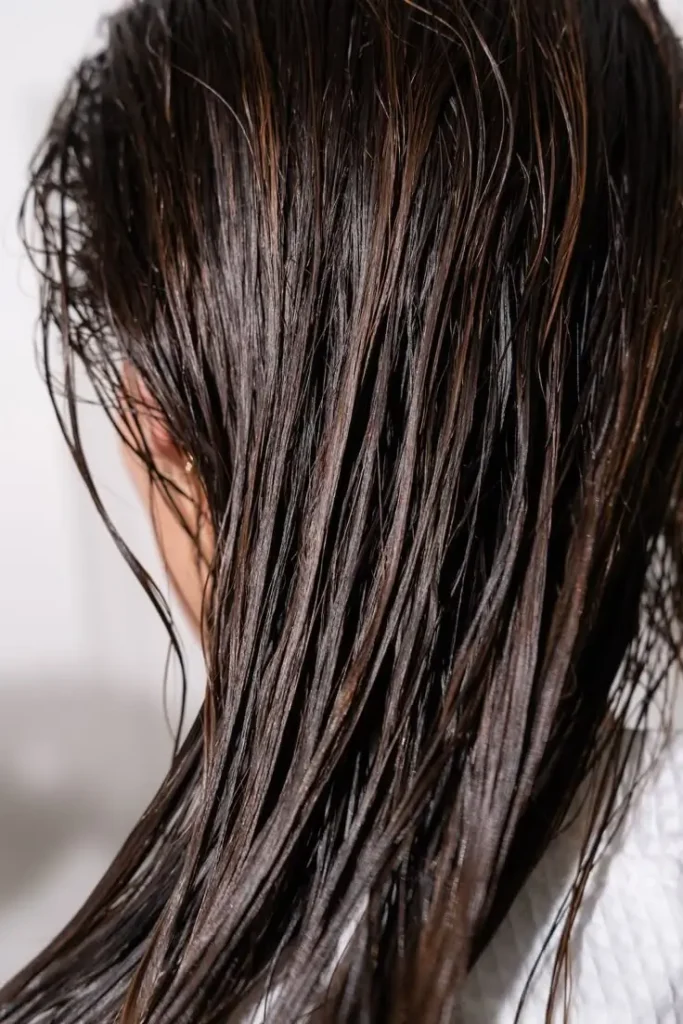
6. Use an Apple Cider Vinegar Rinse
Apple cider vinegar is a natural solution for removing buildup and balancing pH levels. It helps control dandruff and excess oil, keeping your scalp clean and healthy. Mixing one part ACV with two parts water and using it as a rinse can refresh your scalp.
Letting it sit for five minutes before rinsing allows it to work effectively. Doing this once a week can prevent product buildup and keep your scalp feeling fresh.

7. Apply Natural Oils for Scalp Nourishment
Oiling your scalp can deeply nourish hair follicles and prevent dryness and irritation. Coconut oil is excellent for hydration, while castor oil strengthens roots and stimulates growth. Tea tree oil works well for those struggling with dandruff and scalp infections.
Massaging oil into your scalp and leaving it for 30 minutes before washing can make your hair healthier over time. Using natural oils regularly can improve scalp hydration and promote hair growth.

8. Protect Your Scalp from the Sun
Your scalp can get sunburned just like your skin, leading to dryness and irritation. Wearing a hat or using a scalp sunscreen can protect it from harmful UV rays. If you have thin hair, a leave-in sunscreen spray is a great option.
Protecting your scalp from the sun prevents damage and flaking, keeping it healthy in all seasons.

9. Drink More Water for Scalp Hydration
Hydration plays a key role in scalp health and hair growth. Drinking at least eight glasses of water daily helps keep your scalp moisturized from within. When you don’t drink enough water, your scalp may become dry, itchy, and flaky.
Eating water-rich foods like cucumbers and watermelon can also support scalp hydration. Staying hydrated keeps your scalp and hair naturally healthy.

10. Reduce Heat Styling and Chemical Treatments
Excessive heat and harsh chemicals can damage the scalp’s natural barrier. Using heat protectant sprays before styling helps minimize the damage. Giving your scalp a break from frequent bleaching, coloring, and relaxers can prevent long-term irritation.
Letting your hair air dry whenever possible reduces stress on the scalp. Avoiding harsh treatments keeps your scalp strong and your hair healthier.

11. Eat a Scalp-Friendly Diet
The food you eat directly affects your scalp’s health and hair growth. Omega-3 fatty acids found in salmon and walnuts help keep the scalp hydrated and nourished. Biotin and zinc from eggs and leafy greens strengthen hair follicles.
Eating iron-rich foods like spinach can also prevent hair thinning and shedding. A well-balanced diet supports a healthy, well-nourished scalp.

12. Try a Scalp Serum for Extra Care
Scalp serums are formulated to hydrate, soothe, and strengthen the scalp. Choosing a serum with ingredients like niacinamide or peptides can boost scalp health. Applying it before bed allows the nutrients to absorb overnight.
Using a scalp serum consistently can reduce dryness, prevent dandruff, and support hair growth.

13. Switch to a Silk Pillowcase
Cotton pillowcases can absorb natural oils from your scalp, leading to dryness. Switching to a silk pillowcase helps retain moisture and reduce friction. This can prevent tangles and breakage while keeping your scalp healthy.
Silk pillowcases are also gentler on sensitive scalps, making them a great investment for hair and scalp health.

14. Use a Pre-Shampoo Treatment
Applying a scalp oil or aloe vera mask before washing can help loosen buildup and hydrate the scalp. Pre-shampoo treatments are especially useful for dry or irritated scalps.
Letting the treatment sit for 30 minutes allows the scalp to absorb moisture and nutrients before cleansing.

15. Avoid Heavy Hair Products
Using too many styling products can weigh down your scalp and lead to product buildup. When gels, sprays, and creams accumulate, they can clog hair follicles, making it harder for your scalp to breathe. This can result in itchiness, irritation, and even hair thinning over time.
Switching to lightweight, non-greasy formulas can help maintain a healthy scalp environment. Avoid applying products directly to the scalp, and instead, focus on the mid-lengths and ends of your hair. Keeping your scalp free from excess product ensures better circulation and stronger hair growth.
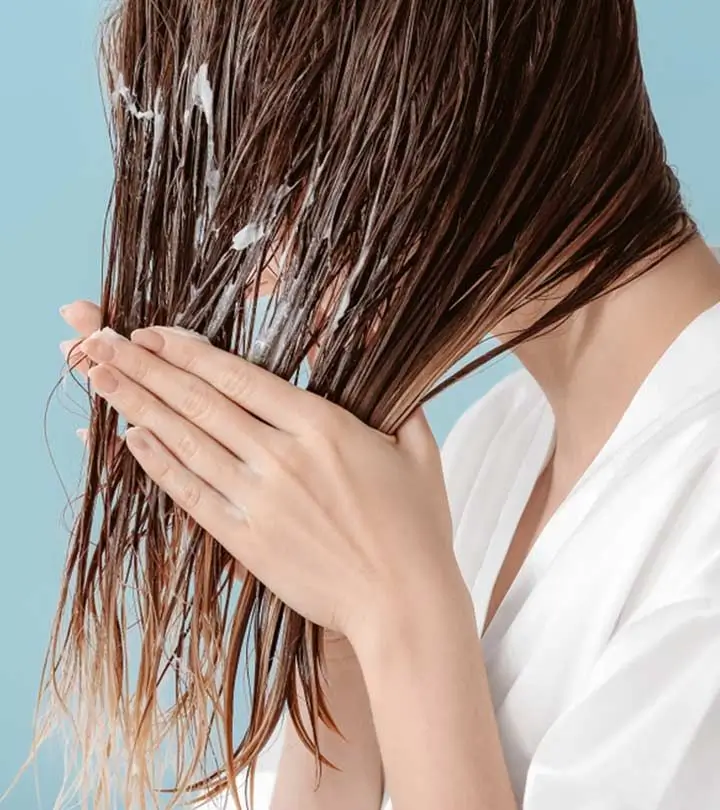
16. Try an Overnight Scalp Mask
Overnight scalp masks provide deep hydration and nourishment while you sleep. They help repair dryness, reduce dandruff, and promote healthier roots. A simple mask made from coconut oil, argan oil, or aloe vera can work wonders.
Apply a small amount to your scalp before bed, massage it in gently, and cover with a shower cap or silk scarf. In the morning, wash your hair with a gentle shampoo to remove any excess oil. Doing this once a week can restore moisture and boost scalp health.
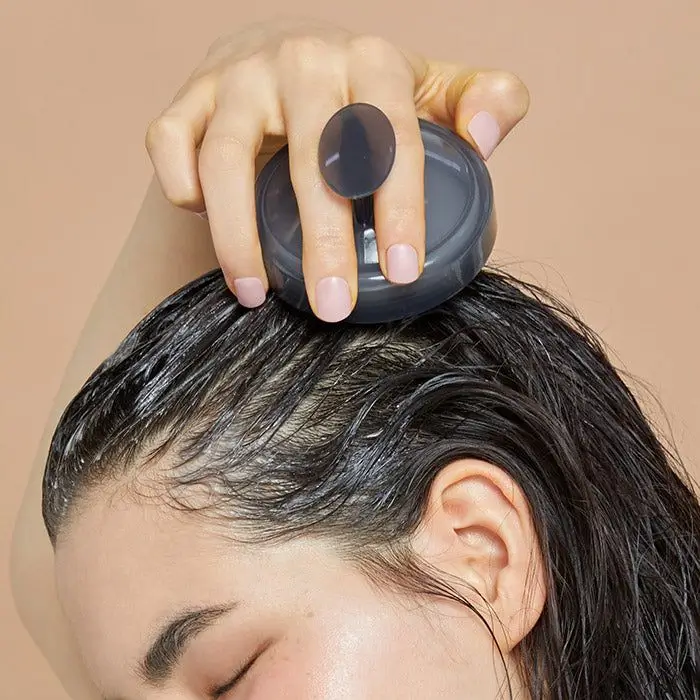
17. Manage Stress for a Healthier Scalp
Stress doesn’t just affect your mental health—it also impacts your scalp and hair growth. High-stress levels can cause excessive oil production, dandruff, and even hair shedding. If your scalp feels irritated or unbalanced, stress could be a contributing factor.
Practicing meditation, deep breathing, or regular exercise can help regulate stress levels. Ensuring you get enough sleep also allows your scalp to recover and rejuvenate. Keeping stress under control leads to a happier, healthier scalp.

18. Keep Your Scalp Cool and Sweat-Free
Excess sweat can mix with dirt and oil, leading to clogged hair follicles and scalp odor. After workouts or on hot days, it’s essential to keep your scalp clean and refreshed.
Washing your scalp after excessive sweating prevents buildup and breakouts. Using a lightweight scalp mist or refreshing spray can also help maintain scalp freshness between washes. Keeping your scalp cool minimizes irritation and keeps it feeling comfortable all day.
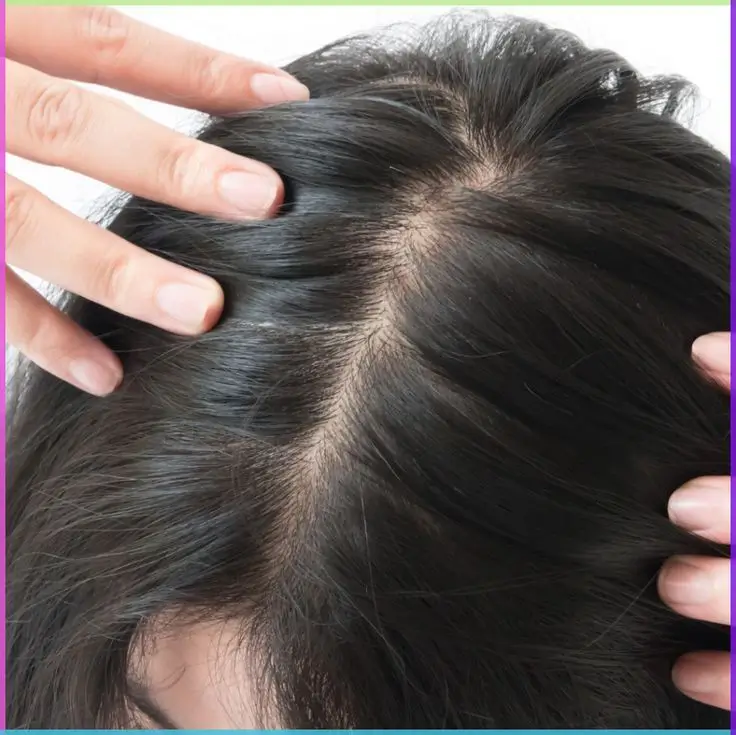
19. Trim Split Ends to Prevent Scalp Damage
Regular trims don’t just keep your hair looking fresh—they also prevent stress on the scalp. Split ends tend to travel up the hair shaft, affecting the overall health of your hair and scalp.
Getting a trim every 6-8 weeks ensures that weak, damaged ends don’t cause unnecessary scalp tension. Avoiding excessive heat styling and rough brushing can also prevent further damage. Keeping your hair in good condition reduces breakage and promotes healthier growth.

20. Avoid Hot Water While Washing Hair
Using hot water while washing your hair can strip the scalp of its natural oils, leading to dryness and irritation. Hot water opens the hair cuticle too much, making the scalp more prone to flakiness and itchiness.
Switching to lukewarm or cool water helps preserve moisture and maintain a balanced scalp environment. If you love warm showers, try rinsing your hair with cool water at the end to lock in hydration and keep your scalp refreshed.

21. Listen to Your Scalp’s Needs
Your scalp will always give you signs when something isn’t right. If it’s itchy, overly dry, or excessively oily, it’s time to adjust your routine. Keeping track of how your scalp responds to different products and treatments can help you find the perfect care routine.
Experiment with different hydrating treatments, exfoliants, and shampoos to see what works best. Being consistent with your routine will lead to a healthier, stronger scalp in the long run. A well-cared-for scalp means beautiful, thriving hair that grows with confidence.

Final Thoughts
Scalp care isn’t just about washing your hair—it’s about nourishing, protecting, and maintaining balance. A healthy scalp leads to shinier, stronger, and healthier hair.
Incorporating these 21 scalp care routine ideas into your weekly regimen will help improve moisture levels, reduce irritation, and promote growth. Taking the time to care for your scalp today will result in long-lasting, healthier hair tomorrow. What’s the first scalp care tip you’re excited to try? 😊


